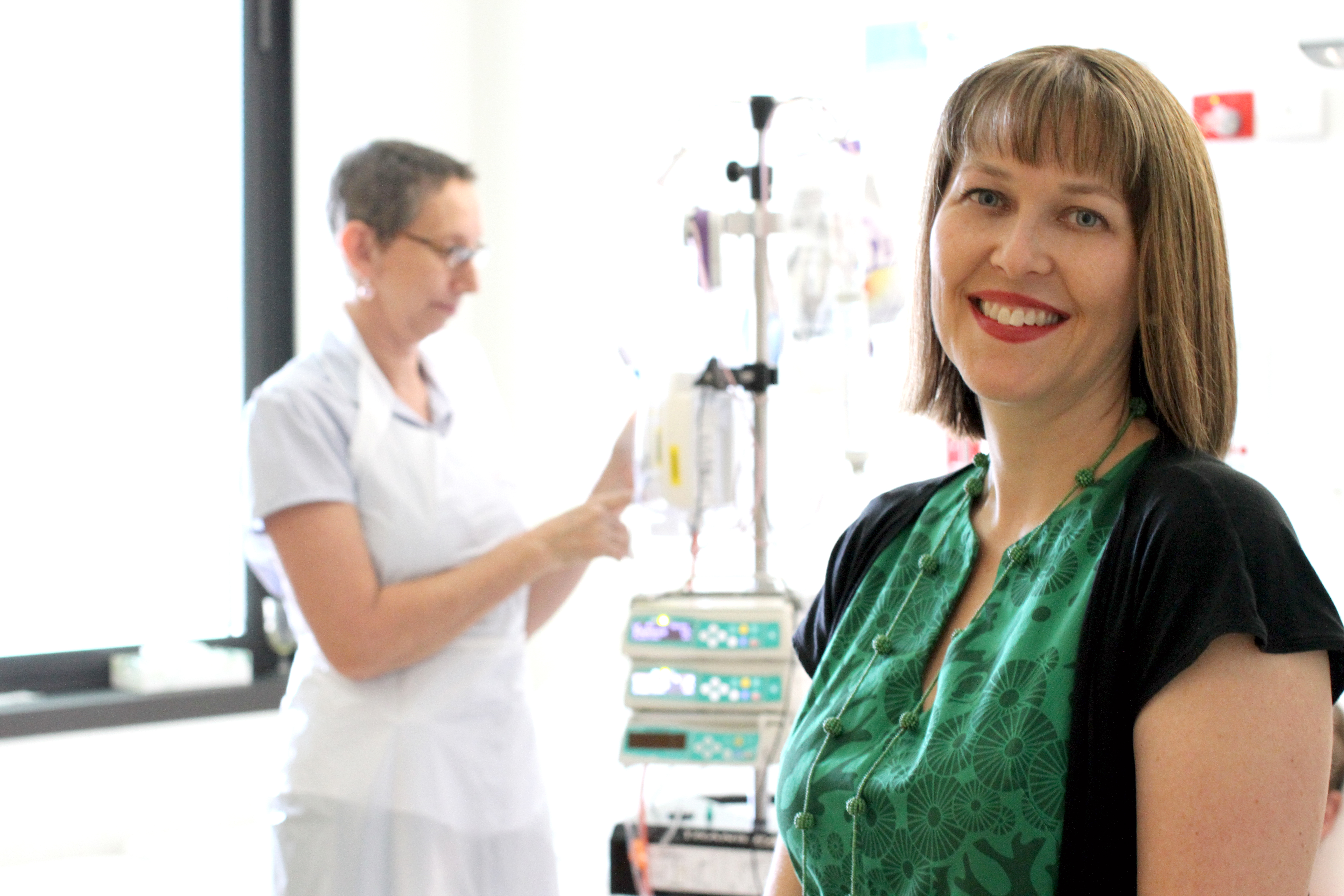Do you want to develop your research skills in infection prevention or vascular access? We're here to help.
Our researchers work with clinicians, consumers, industry, government and academic partners to generate and implement evidence for clinical practices that prevent and detect healthcare associated infection across the spectrum of healthcare specialties.
We strive to investigate and trial solutions for real-world problems, minimising infectious complications, and reducing economic and societal burden.
A particular focus is on the surveillance, detection, and prevention of infections in invasive medical devices such as vascular and urinary catheters, which are a leading cause of healthcare associated bloodstream infections.
Our research team is a collaborative between the University of Queensland’s School of Nursing, Midwifery and Social Work, the UQ Centre for Clinical Research (UQCCR), Metro North’s Herston Infectious Diseases Institute (HeIDI) and the Alliance for Vascular Access Teaching and Research (AVATAR). We are based at the Royal Brisbane and Women’s Hospital in Brisbane, Australia with worldwide collaborations.

The Infection Prevention and Vascular Access group is led by Professor Claire Rickard, who has over 25 years’ experience in invasive device research. Our researchers are all health professionals with a passion for healthcare safety and quality improvement.
The Infection Prevention and Vascular Access group offers great opportunities for clinician researchers to make a difference. If you’re an enthusiastic student or professional with a passion for infection prevention and/or vascular access research, please contact us.
The program of research is led by Professor Claire Rickard
Research projects
- Difficult Access Requires Thought, Training and Technology (DART3) - Co-developing an ultrasound pathway for patients with difficult intravenous access.
- I-DECIDED - Device assessment and decision tool.
- Mortality, length of stay, and cost attributable to CRBSI and CLABSI in patients with a central venous catheter in an Australian tertiary hospital: a case-control study
- Prediction of catheter associated bloodstream infection in critically ill adults
- “Protect PIVCs”: A pilot randomized controlled trial of a novel antimicrobial dressing in peripheral intravenous catheters (PIVCs)
- Developing consensus derived HAI surveillance definitions through a modified Delphi process.
- Characterisation of Intravascular Access Device (IVAD) Staphylococcus aureus Blood Stream Infection (SAB)
- Investigating healthcare associated infection surveillance activities - perspectives of infection control practitioners in Queensland hospitals.
- Mapping hospital-associated infection surveillance across Queensland public hospitals: A descriptive study to identify practice variation across organisation.
- Artificial intelligence methods for predicting hospital acquired infection and complications associated with invasive medical devices: a systematic review
- Systematic review of peripheral IV Catheter training programs for novice health care practitioners
- An interrupted time-series study to improve invasive devices assessment and decision making in hospital patients (All devices)
- Paediatric peripheral intravenous catheter care: Interrupted time-series study of a structured assessment and decision tool (Brazilian Portuguese)
- An interrupted time-series study to improve invasive devices assessment and decision making in hospital patients (All devices, Adults, Japanese)
- Mapping clinical practice and policy to the ‘Management of Peripheral Intravenous Catheters Clinical Care Standard’: A multi-site point prevalence study
- The current state of peripheral intravenous catheter care globally: A systematic review and meta-analysis protocol
- Exploring peripheral intravenous catheter insertion factors, dressing characteristics and outcomes: A secondary analysis of a multi-site, cluster randomised controlled trial
- Cancer and blood disorders patients’ experience and perspectives of intravenous cannulation
- Implementation of the Medicaton Administration Evaluation and Feedback Tool (MAEFT): Knowledge translation
Project lead
Research team
- Ms Daner Ball
- Dr Jessica Schults
- Dr Sally Havers
- Dr Karen Davies
- Dr Gillian Ray-Barruel
- Dr Josephine Lovegrove
- Ms Karina Charles
- Ms Rita Nemeth
- Ms Jane Wickins
- Ms Andrea Valks
- Ms Christine Brown
- Ms Alison Smith
- Mr Gaurav Langan
- Ms Saroeun Ven
- Ms Lucy Shinners
- Ms Rebecca Webster
- Ms Leika Vorage
Contact
Email Daner Ball (d.ball@uq.edu.au) to discuss projects and collaborative opportunities.
